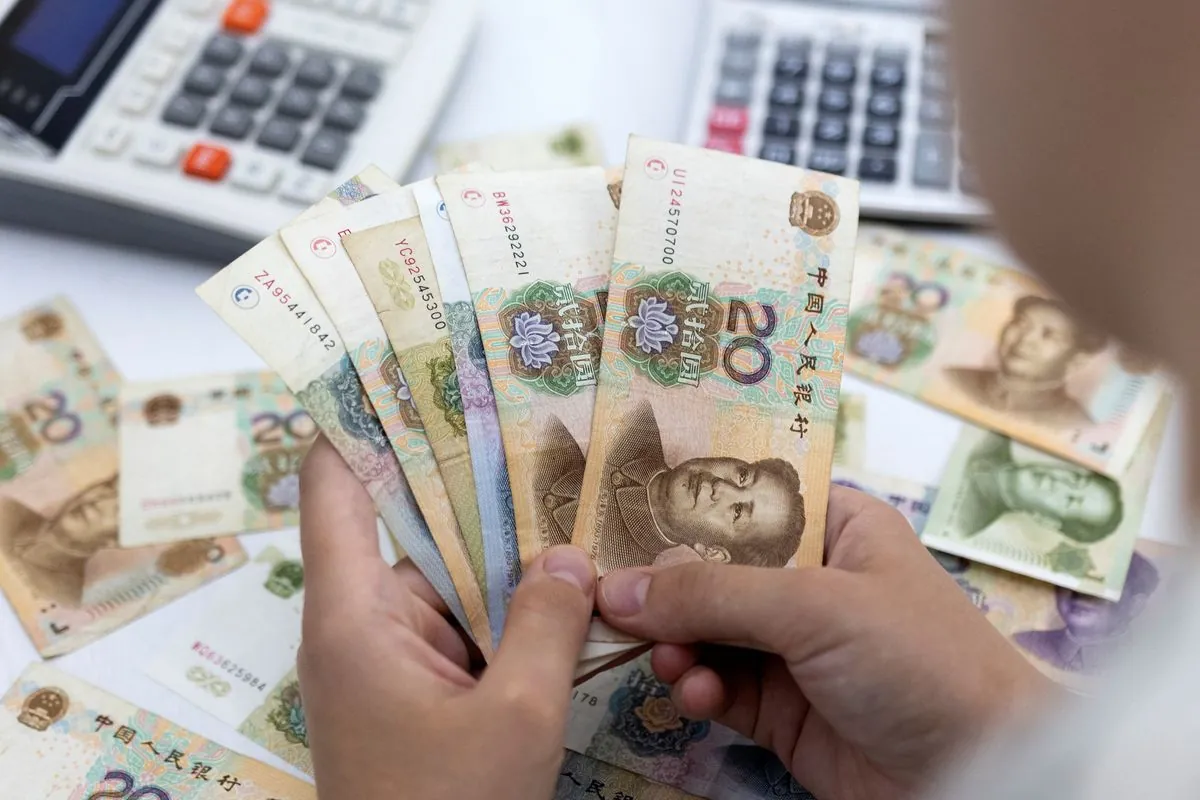The People's Bank of China (PBOC) has recently unveiled a series of aggressive monetary easing measures aimed at stimulating the world's second-largest economy. However, economic analysts argue that these steps may not be sufficient to address the core issue of weak consumer demand in China.
On September 25, 2023, the PBOC announced liquidity injections and interest rate cuts, marking its boldest set of measures since the COVID-19 pandemic. The central bank, established on December 1, 1948, has been gradually liberalizing interest rates since the 1990s and employs various monetary policy tools to manage the economy.
The latest measures include a cut in the reserve requirement ratio for banks, which is expected to release approximately 1 trillion yuan ($142 billion) into the financial system. Additionally, the PBOC has reduced a key interest rate by 20 basis points, a move larger than usual but still modest compared to typical central bank actions globally.
While these steps have lifted market sentiment, many economists believe they fall short of addressing the fundamental challenges facing the Chinese economy. Shuang Ding, chief economist for Greater China and North Asia at Standard Chartered, noted, "The central bank policies exceeded expectations, but the main problem in the economy today is not the lack of liquidity."
The Chinese economy has been grappling with strong deflationary pressures and risks missing its 2023 growth target of around 5%. This economic slowdown is primarily attributed to a sharp property downturn and frail consumer confidence. The property sector, which accounts for about 30% of China's GDP when related industries are included, has been a significant drag on growth.
Analysts argue that fiscal policies putting money directly into consumers' pockets through higher pensions and other social benefits are necessary to complement the monetary measures. Fred Neumann, chief Asia economist at HSBC, emphasized the need to boost demand through fiscal policy interventions.
"The most direct way to stimulate the economy in the short-term is through more government investment, although economists are increasingly in favour of demand-side support, which could come in the form of consumption vouchers or similar policies."
China's economic structure has long been characterized by an imbalance between investment and consumption. The share of household consumption in annual economic output is approximately 20 percentage points below the global average, while investment is 20 points above. This imbalance has persisted despite the government's efforts to promote a "dual circulation" strategy since 2020, aimed at boosting domestic consumption.
The effectiveness of the PBOC's current measures remains uncertain, given weak credit demand from households and businesses. China's household savings rate, one of the highest globally at around 30% of disposable income, further complicates efforts to stimulate consumer spending.
As the PBOC continues to navigate these economic challenges, it's worth noting that China's foreign exchange reserves, the world's largest, stood at $3.2 trillion as of August 2023. The central bank has also been developing a central bank digital currency (e-CNY) since 2014, potentially offering new tools for monetary policy implementation in the future.
Looking ahead, many economists anticipate additional fiscal stimulus measures to complement the monetary easing. These could include increased government investment, consumption vouchers, or reforms to China's "hukou" system of household registration, which affects internal migration and urban-rural economic disparities.
As China strives to maintain its economic growth and address structural imbalances, the interplay between monetary and fiscal policies will be crucial in shaping the country's economic trajectory in the coming years.
